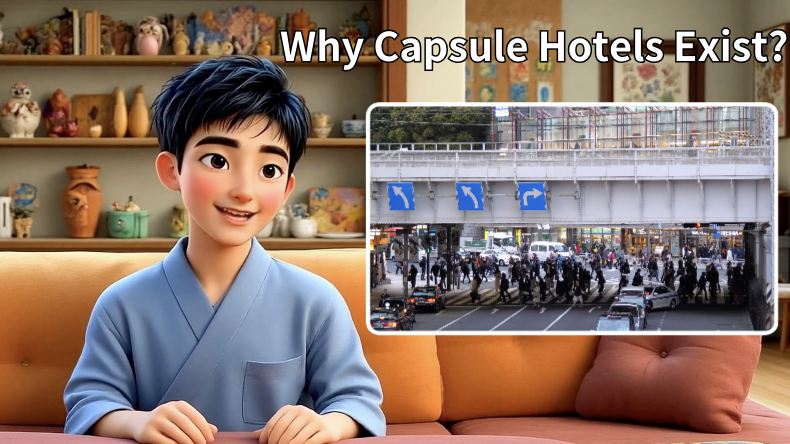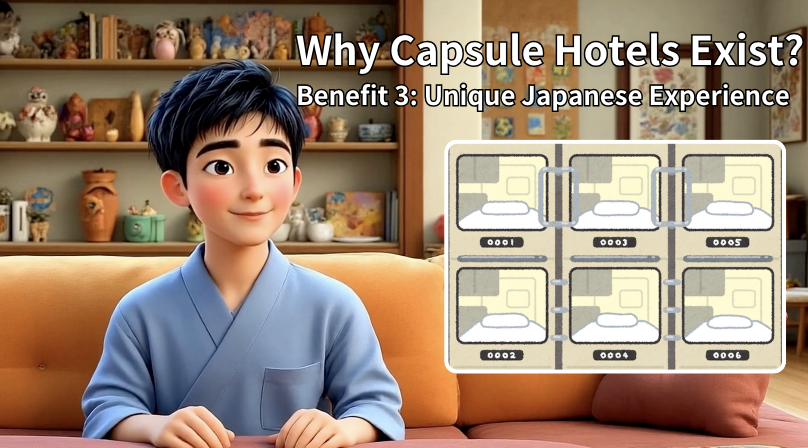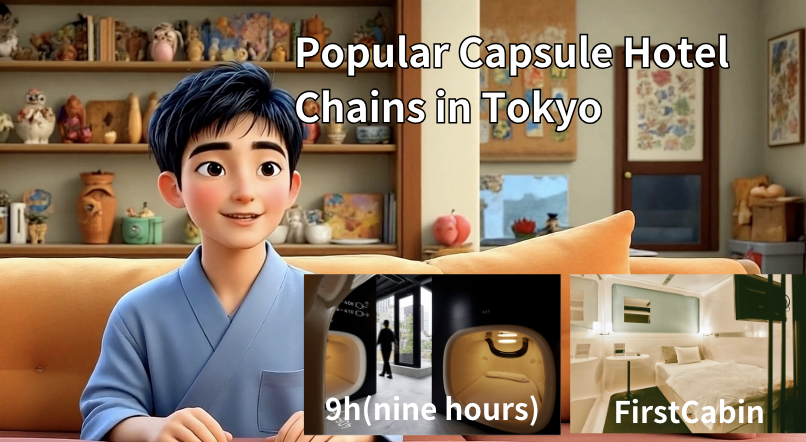Hello everyone planning a trip to Tokyo! Today, we’re diving into Japan’s unique lodging style—Capsule Hotels.
You’ve probably heard they’re affordable, but what are they really like?

Today I’ll answer that question and share the pros and cons, explain why capsule hotels became popular, introduce the latest trends, and highlight some major capsule hotel chains in Tokyo. Let’s get started!
- Why Capsule Hotels Exist?
- Benefit 1: Extremely Affordable
- Benefit 2: Prime Locations
- Benefit 3: Unique Japanese Experience
- Latest Trends: Evolving Capsule Hotels
- Popular Capsule Hotel Chains in Tokyo
- Capsule Hotels vs. Youth Hostels
- Drawback 1: Limited Privacy
- Drawback 2: Minimal Luggage Space
- Drawback 3: Shared Facilities
- Summary
Why Capsule Hotels Exist?

Capsule hotels originated in Japan during the economic boom of the 1980s, initially created for busy businesspeople who missed the last train or needed a convenient place to stay overnight.
Efficient use of space and low-cost lodging reflect Japan’s innovative approach to accommodation.
Benefit 1: Extremely Affordable

The biggest appeal of capsule hotels is undoubtedly their price! Hotels in Tokyo can be pricey, but capsule hotels usually range between 3,000 to 5,000 yen per night.
If you’re looking to save your travel budget, they’re perfect.
Benefit 2: Prime Locations

Another advantage is location. Most capsule hotels are conveniently located near train stations, making them great bases for sightseeing or business activities.
If you want easy access to major attractions, capsule hotels are a smart choice.
Benefit 3: Unique Japanese Experience

Plus, staying in a capsule hotel itself is a memorable part of your Japan adventure.
The compact, cozy space feels like your own little hideaway, perfect for unique travel memories and social media posts!
Latest Trends: Evolving Capsule Hotels

Recently, capsule hotels have evolved significantly, becoming more stylish and comfortable.
Many facilities now feature female-only floors, enhanced privacy, and even amenities like saunas, cafes, and lounges.
It’s not just about affordability anymore; it’s about style and comfort too.
Popular Capsule Hotel Chains in Tokyo

Tokyo has several prominent capsule hotel chains.
For instance, “Nine Hours” is popular for its modern and clean design, appealing especially to women.
“First Cabin” offers slightly larger capsules inspired by airplane cabins, providing more comfort.
Capsule Hotels vs. Youth Hostels

You might also wonder how capsule hotels differ from youth hostels.
Hostels typically feature shared dormitory-style rooms, promoting social interactions with travelers worldwide.
In contrast, capsule hotels provide small yet private sleeping spaces, offering a balance between affordability and privacy.
If you prefer interacting with fellow travelers, hostels might suit you better. If a private space, even a small one, is important, a capsule hotel is your best bet.
Drawback 1: Limited Privacy

However, capsule hotels do come with downsides.
The main concern is limited privacy. With other guests sleeping close by, noise and lack of privacy can be challenging for sensitive sleepers.
Drawback 2: Minimal Luggage Space

Another downside is limited luggage storage.
You’ll typically use shared lockers, which can be inconvenient if you’re traveling with large suitcases.
Drawback 3: Shared Facilities

Also, showers and toilets are communal, and during busy hours, waiting times can occur.
If sharing amenities with others bothers you, consider alternative accommodations.
Summary

So, what do you think? Capsule hotels offer affordability, convenience, and a unique cultural experience, but they’re not ideal if you prioritize privacy or extensive comfort.
Consider your travel preferences carefully when making your choice!
Thanks for watching! If you found this helpful, please subscribe and like this video. Stay tuned for more tips to enhance your Tokyo experience. See you in the next video!


